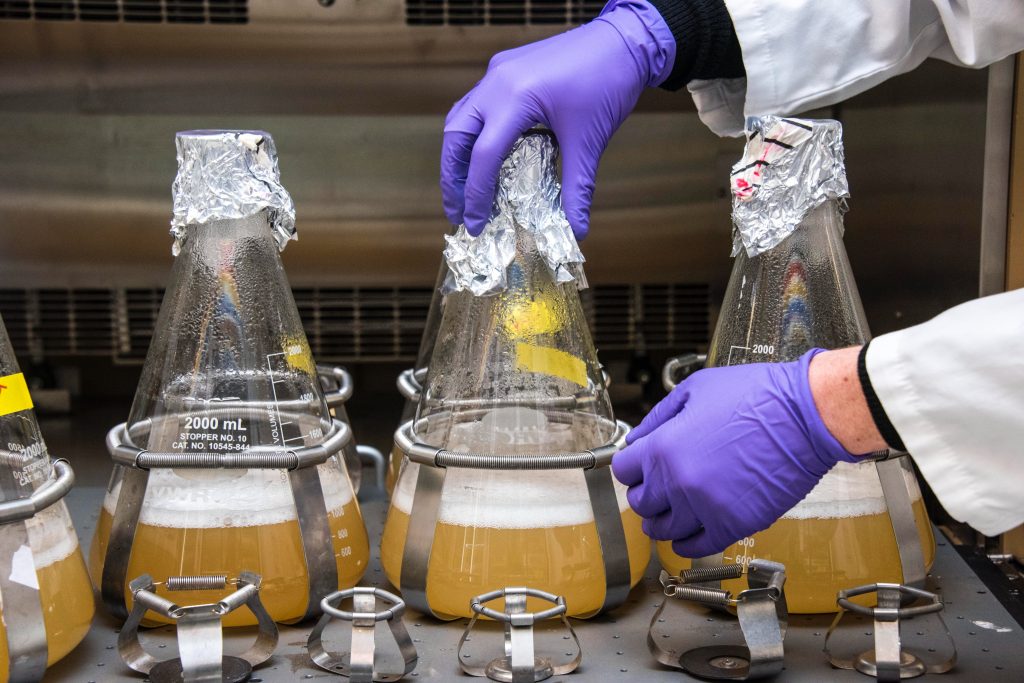Undergraduate student completes successful 8-week final year research project in collaboration with clinical virologists at William Harvey Hospital, Ashford
Carmen Ma has used PCR and in vitro transcription techniques to clone a gene from the Human Cytomegalovirus (HCMV) into a plasmid and to express and purify the messenger RNA it encodes. This RNA is needed as a vital positive control in a test used to detect HCMV infection in Letermovir–treated immunosuppressed patients. It is essential that the efficiency of the test can be monitored each time it is run to prevent misleading results.
Patients who receive kidney transplants take immunosuppressive drugs to prevent their bodies from rejecting the donor organ. Unfortunately, this can result in new viral infections or the reactivation of latent infections. Human Cytomegalovirus (HCMV) infection is very common and normally harmless, but in immunosuppressed patients it can become very dangerous. HCMV is currently treated with ganciclovir, an anti-retroviral drug with toxic side-effects making it unsuitable for prophylactic use. However, a new drug (Letermovir) has recently become available with less damaging side effects suggesting it can be used to treat immunosuppressed patients.
Letermovir acts at a different stage of the HCMV replication cycle to ganciclovir, meaning that existing DNA-based methods of HCMV detection can’t be used. The assay for HCMV detection in Letermovir-treated patient relies on synthesising complementary DNA from a specific messenger RNA and then measuring its amount by quantitative PCR. Such tests require a control sample to show that the biochemical reactions in the process are working correctly otherwise false-negatives could be obtained. Carmen’s work has provided the material for these control samples allowing then to be included in the test and so improving the reliability the results. Even in a short 8-week final year research project, Carmen’s work has made a significant contribution to how HCMV disease is being monitored in immunosuppressed patients.
Congratulations, Carmen, on your outstanding success.
Carmen was supervised by Dr Tim Fenton and Dr Nerissa Kirkwood at the School of Biosciences and the project is part of a collaboration with Dr Sam Moses (Honorary Senior Lecturer in the School of Biosciences and Consultant in Virology and Infection at William Harvey Hospital, Ashford) and Prof Martin Michaelis, also in the School of Biosciences.
Photo by Science in HD on Unsplash

